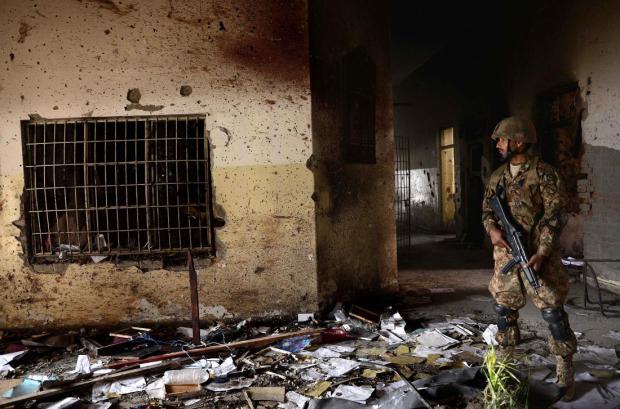by David Kavanagh
Exactly 311 people have been executed by hanging in Pakistan since the end of last year, an anonymous official in the country’s Interior Ministry has revealed.
This comes down to about one person killed per day, barring religious holidays, and puts Pakistan as the country with the third highest rate of execution by hanging behind China and Iran.
International human rights organisation Reprieve has raised concerns about these figures, noting that ‘forced’ confessions and police torture are common in Pakistan.
As over 73% of births in Pakistan are not registered, Reprieve also suggest some of those executed may have been juveniles when they were arrested.

Aftab Bahadur was hanged on the morning of June 10, 2015 for a crime he allegedly committed as a child. Source: The Guardian
In June of this year, 37-year-old Aftab Bahadur was hanged at Kot Lakhpat for murders he was allegedly involved in at the age of 15.
All eyewitnesses to his case had claimed he was innocent and it was suggested that the man who had implicated Mr Bahadur had only done so as a result of police torture.
Head of Reprieve’s death penalty team Maya Foa said the Pakistani government has no idea how many of those currently on death row are innocent or were arrested as children.
“It is appalling that the authorities are proceeding with executions at this rate,” she said.
“If they continue to execute one person a day, by the end of next year they will have killed nearly a thousand people, among whom there will almost certainly be a large number of juveniles, and innocent people tortured into ‘confessing’ to crimes they didn’t commit.
“This senseless massacre will not make Pakistan any safer, and must be stopped.”
Pakistan’s government lifted a six year moratorium on the death penalty in December 2014 following the murder of 141 people, including 132 children, by Taliban-affiliated extremists at a school in the Northwestern city of Peshawar.

A Pakistani soldier guards the Peshawar school attacked by militants on December 18, 2014. Source: A Majeed/AFP/Getty Images
At the time, government officials promised this would act to deter further violence from militant groups.
While it was initially said the penalty would be reserved mainly for people convicted of terrorism charges, the Human Rights Commission of Pakistan (HRCP) has determined a majority of those executed did not fall into this category.
In fact, Reuters reported that by July 2015, 83% of people that had been executed since the moratorium was abandoned had no links to militancy at all.
Speaking to Reuters in that same month, the Prime Minister’s special assistant for law Ashtar Ausaf Ali said the number of terrorist attacks had reduced drastically since December.
“One of the reasons is fear… of being executed,” he said.
While the number of extremist attacks in Pakistan have indeed fallen since 2010, when Taliban insurgents began losing territory following increased military crackdowns, a lack of a dramatic decline in 2015 specifically suggests the executions may not be a major cause for this.
HRCP spokesman Zaman Khan said the figures were painful.
“Cruelty at its worse, to say the least,” he said.
The UN, EU and various international human rights groups have called for Pakistan to reinstate the moratorium.
For more of this kind of content, follow Journalytic on Facebook or Twitter